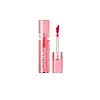What's inside
What's inside
 Key Ingredients
Key Ingredients

 Benefits
Benefits

 Concerns
Concerns

 Ingredients Side-by-side
Ingredients Side-by-side

Water
Skin ConditioningDiphenyl Dimethicone
EmollientDiisostearyl Malate
EmollientBis-Diglyceryl Polyacyladipate-2
EmollientHydrogenated Polyisobutene
EmollientBis-Behenyl/Isostearyl/Phytosteryl Dimer Dilinoleyl Dimer Dilinoleate
EmollientDiglycerin
HumectantCetyl PEG/PPG-10/1 Dimethicone
EmulsifyingDipropylene Glycol
HumectantHydrogenated Poly(C6-14 Olefin)
EmollientPolysorbate 60
EmulsifyingSorbitan Isostearate
EmulsifyingDiisostearoyl Polyglyceryl-3 Dimer Dilinoleate
EmollientPentylene Glycol
Skin ConditioningHydroxyethyl Acrylate/Sodium Acryloyldimethyl Taurate Copolymer
Emulsion StabilisingCaprylic/Capric Triglyceride
MaskingSqualane
EmollientCeteareth-20
CleansingEthylene/Propylene Copolymer
AbrasivePhenoxyethanol
PreservativeGlycerin
HumectantCI 77891
Cosmetic ColorantPolyglycerin-3
HumectantCI 15985
Cosmetic ColorantParfum
MaskingEthylhexylglycerin
Skin ConditioningCI 17200
Cosmetic ColorantCI 45410
Cosmetic ColorantCI 42090
Cosmetic ColorantHamamelis Virginiana Leaf Extract
Skin ConditioningLilium Tigrinum Extract
Skin ConditioningButylene Glycol
HumectantWater, Diphenyl Dimethicone, Diisostearyl Malate, Bis-Diglyceryl Polyacyladipate-2, Hydrogenated Polyisobutene, Bis-Behenyl/Isostearyl/Phytosteryl Dimer Dilinoleyl Dimer Dilinoleate, Diglycerin, Cetyl PEG/PPG-10/1 Dimethicone, Dipropylene Glycol, Hydrogenated Poly(C6-14 Olefin), Polysorbate 60, Sorbitan Isostearate, Diisostearoyl Polyglyceryl-3 Dimer Dilinoleate, Pentylene Glycol, Hydroxyethyl Acrylate/Sodium Acryloyldimethyl Taurate Copolymer, Caprylic/Capric Triglyceride, Squalane, Ceteareth-20, Ethylene/Propylene Copolymer, Phenoxyethanol, Glycerin, CI 77891, Polyglycerin-3, CI 15985, Parfum, Ethylhexylglycerin, CI 17200, CI 45410, CI 42090, Hamamelis Virginiana Leaf Extract, Lilium Tigrinum Extract, Butylene Glycol
Water
Skin ConditioningOctyldodecanol
EmollientTrimethylsiloxyphenyl Dimethicone
Sorbitan Stearate
EmulsifyingEthylcellulose
Cetearyl Alcohol
EmollientPolysorbate 60
EmulsifyingAcrylates Copolymer
Polyacrylate-13
Polyisobutene
Polysorbate 20
EmulsifyingSorbitan Isostearate
Emulsifying1,2-Hexanediol
Skin ConditioningHydroxyacetophenone
AntioxidantLimnanthes Alba Seed Oil
Skin ConditioningTriethanolamine
BufferingOlea Europaea Fruit Oil
MaskingTocopherol
AntioxidantGlycerin
HumectantPrunus Persica Fruit Extract
AbrasivePhenoxyethanol
PreservativeEthylhexylglycerin
Skin ConditioningSimmondsia Chinensis Seed Oil
EmollientButyrospermum Parkii Butter
Skin ConditioningPrunus Amygdalus Dulcis Oil
Skin ConditioningHelianthus Annuus Seed Oil
EmollientHydroxyethylcellulose
Emulsion StabilisingLilium Speciosum Flower Oil
MaskingOsmanthus Fragrans Flower Extract
MaskingCI 77491
Cosmetic ColorantCI 77492
Cosmetic ColorantCI 77499
Cosmetic ColorantCI 16255
Cosmetic ColorantCI 19140
Cosmetic ColorantCI 42090
Cosmetic ColorantCI 77891
Cosmetic ColorantCI 17200
Cosmetic ColorantWater, Octyldodecanol, Trimethylsiloxyphenyl Dimethicone, Sorbitan Stearate, Ethylcellulose, Cetearyl Alcohol, Polysorbate 60, Acrylates Copolymer, Polyacrylate-13, Polyisobutene, Polysorbate 20, Sorbitan Isostearate, 1,2-Hexanediol, Hydroxyacetophenone, Limnanthes Alba Seed Oil, Triethanolamine, Olea Europaea Fruit Oil, Tocopherol, Glycerin, Prunus Persica Fruit Extract, Phenoxyethanol, Ethylhexylglycerin, Simmondsia Chinensis Seed Oil, Butyrospermum Parkii Butter, Prunus Amygdalus Dulcis Oil, Helianthus Annuus Seed Oil, Hydroxyethylcellulose, Lilium Speciosum Flower Oil, Osmanthus Fragrans Flower Extract, CI 77491, CI 77492, CI 77499, CI 16255, CI 19140, CI 42090, CI 77891, CI 17200
Ingredients Explained
These ingredients are found in both products.
Ingredients higher up in an ingredient list are typically present in a larger amount.
Ci 17200 is a synthetic reddish-purple dye.
Ci 42090 is a synthetic dye created from petroleum. It is used to give a bright blue color to cosmetics, medicine, and food.
Ci 77891 is a white pigment from Titanium dioxide. It is naturally found in minerals such as rutile and ilmenite.
It's main function is to add a white color to cosmetics. It can also be mixed with other colors to create different shades.
Ci 77891 is commonly found in sunscreens due to its ability to block UV rays.
Learn more about CI 77891Ethylhexylglycerin (we can't pronounce this either) is commonly used as a preservative and skin softener. It is derived from glyceryl.
You might see Ethylhexylglycerin often paired with other preservatives such as phenoxyethanol. Ethylhexylglycerin has been found to increase the effectiveness of these other preservatives.
Glycerin is already naturally found in your skin. It helps moisturize and protect your skin.
A study from 2016 found glycerin to be more effective as a humectant than AHAs and hyaluronic acid.
As a humectant, it helps the skin stay hydrated by pulling moisture to your skin. The low molecular weight of glycerin allows it to pull moisture into the deeper layers of your skin.
Hydrated skin improves your skin barrier; Your skin barrier helps protect against irritants and bacteria.
Glycerin has also been found to have antimicrobial and antiviral properties. Due to these properties, glycerin is often used in wound and burn treatments.
In cosmetics, glycerin is usually derived from plants such as soybean or palm. However, it can also be sourced from animals, such as tallow or animal fat.
This ingredient is organic, colorless, odorless, and non-toxic.
Glycerin is the name for this ingredient in American English. British English uses Glycerol/Glycerine.
Learn more about GlycerinPhenoxyethanol is a preservative that has germicide, antimicrobial, and aromatic properties. Studies show that phenoxyethanol can prevent microbial growth. By itself, it has a scent that is similar to that of a rose.
It's often used in formulations along with Caprylyl Glycol to preserve the shelf life of products.
Polysorbate 60 is used to help stabilize products. It is a surfactant and emulsifier. These properties help keep ingredients together in a product. Surfactants help reduce surface tension between ingredients with different states, such as liquids and solids. Emulsifiers help prevent oils and waters from separating.
Polysorbate 60 is sorbitol-based and created from the ethoxylation of sorbitan. Ethoxylation is a chemical reaction used to add ethylene oxide. Sorbitan is a the dehydrated version of sorbitol, a sugar found in fruits.
In this case, the 60 comes from reacting 60 units of ethylene oxide with sorbitan.
Polysorbates are commonly used in medicine and foods.
Learn more about Polysorbate 60Sorbitan Isostearate is an emulsifer and cleaning agent. It is created from isostearic acid and sorbitol.
As an emulsifier, Sorbitan Isostearate prevents oils and water from separating.
Due to its isostearic acid base, it may not be safe for Malassezia or fungal acne.
Learn more about Sorbitan IsostearateWater. It's the most common cosmetic ingredient of all. You'll usually see it at the top of ingredient lists, meaning that it makes up the largest part of the product.
So why is it so popular? Water most often acts as a solvent - this means that it helps dissolve other ingredients into the formulation.
You'll also recognize water as that liquid we all need to stay alive. If you see this, drink a glass of water. Stay hydrated!
Learn more about Water